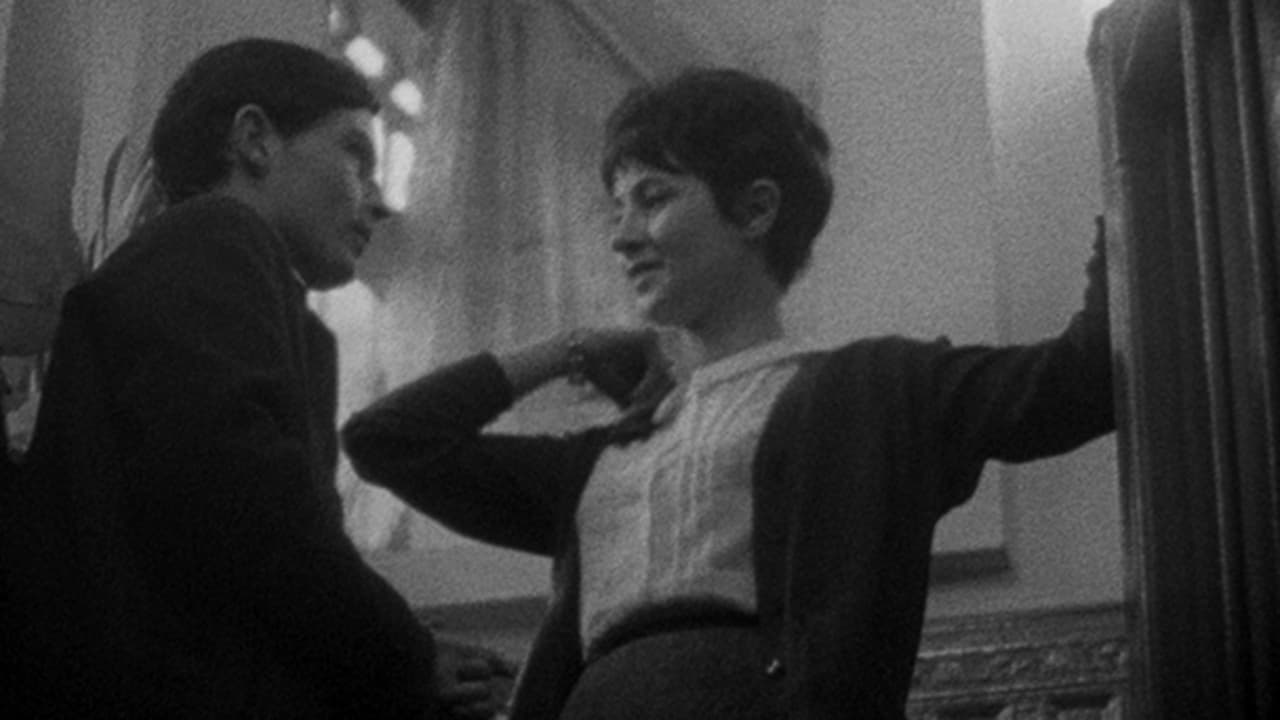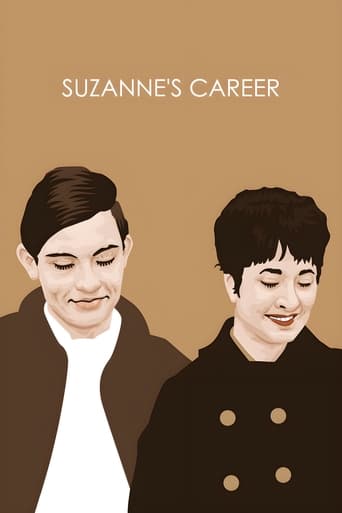

The greatest movie ever made..!
... View MoreI gave this film a 9 out of 10, because it was exactly what I expected it to be.
... View MoreThe thing I enjoyed most about the film is the fact that it doesn't shy away from being a super-sized-cliche;
... View MoreStrong acting helps the film overcome an uncertain premise and create characters that hold our attention absolutely.
... View MoreThis is the second of the moral tales. Rohmer is a bit of an acquired taste. For me, it's that the characters are often unlikeable or weak. In this one, Suzanne is a young woman, enamored with Gillaume, a self centered bad boy Jerk who uses his friends. She is continually mistreated by this guy, and, of course, goes back to him. Bertrand, the feckless other man, Gillaume's friend, is taken with Suzanne and has a seemingly hopeless, puppy-like relationship with her. She pays when they go out, draining her resources. But she is actually using him. What happens is inconsequential. Rohmer is practicing his craft, developing characters, playing them against each other, and keeping out of it. When people meet, they engage in boring conversations. They are so introspective that we wish something would happen, but nothing really does. Just look at these people and enjoy the mastery of a director who knows how to make them real.
... View MoreSuzanne's Career, the second of Eric Rohmer's "Six Moral Tales," is an intriguing little drama encircling the lives of three students: Bertrand, our slightly naïve narrator, Guillaume, a chauvinistic leech, and Suzanne, an easily manipulated, clingy girl whom they take advantage of. In comparison to The Girl at the Monceau Bakery (the first moral tale), Suzanne's Career is significantly darker, better acted, but somehow less effective. There's more meat here, but something gets lost in translation. It is still a good film, but it drags in places and sometimes becomes a little monotonous. If a viewer can get past that, though, the last fifteen minutes of the film is easily the best part of the entire movie.At the beginning, we see Bertrand and Guillaume, two young college boys, having a conversation with Suzanne, a girl whom they've just met. Guillaume decides early on to use the girl, manipulate her emotions, exploit her in any way he can. And he does so effectively, for awhile. Guillaume flirts with other girls in Suzanne's presence, talks down to her, lives off of her money completely regretless. Throughout the whole thing, Bertrand stands by. He is torn between whether or not to go against his friend, who he looks up to, or to join him and manipulate the girl in order to benefit himself.This is a fairly good film. It is longer than the first moral tale, but not quite feature length. The moral dilemma here, concerning fair and right treatment of women, is very interesting to watch unfold. It takes a little too long to get to where it's going, though. The middle drags on for longer than it needed to. There is no question that the two male characters are absolute pigs, but watching them act on their chauvinism gets a little old after awhile. However, good narration, an excellent plot, and a good statement about how people should be treated salvage this moral tale. Suzanne's Career is definitely worth the hour.7/10
... View MorePart two of Eric Rohmer's ongoing series of stories, this one concerns a love triangle of sorts. Bertrand and Guillaume meet Suzanne, a young, plain-looking woman. Bertrand decides not to pursue her, but Guillaume does, and once he's made her his, he pushes her aside. Angered, Suzanne flirts with Bertrand and asks him out in order to make Guillaume jealous. What takes place is a series of events in which both young men take advantage of Suzanne who is somewhat of a mousy character throughout part of Rohmer's plot, but who takes charge in the short movie's later half. SUZANNE'S CAREER also concerns a constant in Rohmer's "Six Moral Tales" theme: the man who is attracted to a woman he does not want, and idealizes another woman he does want (or already is engaged/married to). Normally the spurned woman is not to the type of the protagonist's liking, and the one he is in love with, is. Sophie, in this story, represents that ideal for Bertrand even when to the viewer she appears rather dull and Suzanne has shown a greater personality than originally displayed. Not as talky as LE GENOU DE CLAIRE (indeed, no movie can be!) this one has a little more wit to it, even when it's a little flat here and there.
... View MoreThis film by Eric Rohmer shows that the style for which he has become famous was developed at an early stage - a concentration on the relationships between young people performed by unknown actors in an almost documentary style. As usual with Rohmer the performances of the actors are variable and not much happens in terms of plot. Instead the film concentrates on the emotional development of its young subjects, with the central character a little wiser by the end. The scenes on central Paris in the early sixties mean that part of the film's appeal is as an historical document in the same way as Chabrol's "Les Bonnes Femmes" and Varda's "Cleo De 5 a 7".
... View More